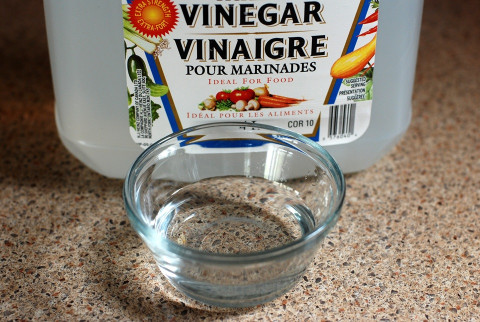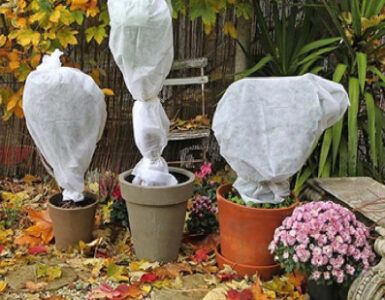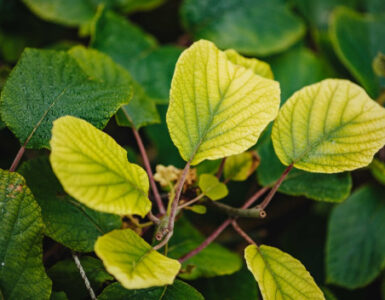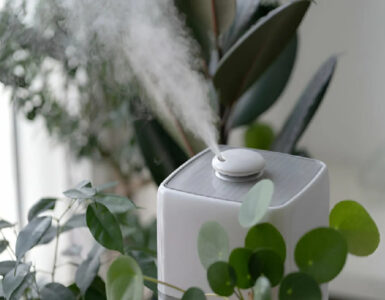Vinegar has numerous uses in the garden. From eliminating weeds to repelling pests, there is a role for it in your vegetable garden.
Moreover, diluted and used carefully, vinegar will not kill the plants you want to keep. Below are some benefits and different ways to use vinegar for plants.
1. Get Rid of Fruit Flies
Fruit flies can be very pesky, attacking a wide range of fruit and vegetable crops and even invading your house. However, you can easily and inexpensively create a DIY fruit fly trap using vinegar.
Recipe one:
Mix 1 cup of water with 1/2 cup of apple cider vinegar, and add 1/4 cup of sugar and a tablespoon of molasses. Pour the solution into some jars or cans.
Next, hang the containers on trees outside and/or inside the kitchen. These will serve as bait to attract and capture fruit flies.
Recipe two:
Add a few drops of dish soap to a small bowl of vinegar. Let it stay uncovered for the flies to come in.
The soap cuts the surface tension of the solution, causing the flies to sink, and the vinegar will kill them. This bait also traps and kills fungus gnats.
2. Keep Some Animals Away
Soak rags or cotton balls in apple cider vinegar. Then, place them around your crops or flowers to help keep pets and other animals away.
The smell is unpleasant to some animals and will deter them from staying. This remedy will deter cats, rabbits, deer, dogs, and raccoons.
3. Clean Rusty Garden Tools
White vinegar is an effective solution for removing rust [1].
To clean rusty garden tools, soak them in vinegar overnight. The next day, use steel wool or something similar to rub off the rust.
However, for severely rusted tools, add a pinch of salt to the vinegar. For every liter of vinegar, add a quarter cup of salt.
4. Repel Ants
Fire ants, like other ants, can become a problem in the garden. They can also be a nuisance around the patio and invade your home.
However, you can create a vinegar solution to get rid of ants. It will repel them.
Just combine one part white vinegar and one part water. Next, spray this natural repellent on anthills and trails around the house and garden.
5. Kill Weeds and Grass
Vinegar is a tried-and-true natural remedy for ridding the garden of weeds, and it can also kill grass.
To kill weeds with vinegar, combine two tablespoons of dish soap, 1 gallon of 20% horticultural vinegar, and two tablespoons of orange oil. This makes a strong homemade weed killer.
Next, use a spray bottle to mist the solution over the weeds and grass you want to eliminate.
6. Natural Fungicide
Vinegar has long been a household product used to clean mold off window sills and other areas in the home.
As such, you can use it to make a homemade mold and mildew solution for plants.
Combine three tablespoons of apple cider vinegar with a gallon of water and use it to spray the plants. This home remedy can help treat and prevent powdery mildew and other fungal issues on plants.
7. Clean Clay Pots
The salts and minerals in water or fertilizer can seep through clay pots, leaving an unsightly white residue over time. Mold also grows in terracotta pots.
To clean these pots, soak them overnight in a mixture of one part water and one part white household vinegar. Next, use a scrub brush to remove the residue.
8. Get Rid of Slugs and Snails
Another effective way to use vinegar in the garden is to repel certain pests, such as slugs and snails.
To deter snails and slugs from eating your plants, mix one cup of plain white vinegar with one cup of water. Spray it directly on these pests.
However, be careful with this homemade organic pesticide, as it can damage certain crops. Try to target only the pests.
9. Clean Plant Leaves
Dirty leaves can block sunlight [2], affecting photosynthesis and natural plant growth. However, you can use vinegar on plants to clean the leaves.
Combine a teaspoon of vinegar with a gallon of water. Next, dip a clean piece of cloth into the solution and use it to wipe the leaves off gently.
This works exceptionally well for indoor and greenhouse plants. You can also mist the leaves and wipe them off with a soft cloth to achieve a shine.
10. General Pest Control Spray
You can also make a homemade vinegar spray for plants to deter harmful insects and related garden pests.
For the recipe, you’ll need one part vinegar, three parts water, and a teaspoon of organic liquid soap. Combine these ingredients with a gallon of water and add them to a spray bottle.
This vinegar solution is not strong enough to kill plant bugs and pests, but it will repel them.
Use it to repel aphids, stink bugs, caterpillars, miller moths, mosquitoes, and others. Spray it in and around your garden.
You can also use it raw (undiluted) to kill spotted lanternflies and Asian jumping worms if the critters are not on or near delicate plants.
11. Boost Acid-Loving Plants
This product can also help lower the soil’s pH for specific plants.
To use vinegar to aid plants that like acidic soil, make a solution by combining one cup of plain white household vinegar with a gallon of water.
Next, water your plants with this vinegar solution. Apply it to the soil around the plants and shrubs, such as azaleas, hydrangeas, and camellias.
12. Help Seeds Germinate Better
Some seeds are difficult to germinate. However, some farmers find that soaking them in vinegar helps to speed up the germination process [3].
In a bowl, mix one cup of water with a teaspoon of vinegar. Let the seeds soak in it overnight.
13. Test the Soil for Alkalinity
There is no need to buy a soil pH test kit to test whether your soil is alkaline.
Add 1/2 cup of white vinegar to 1 cup of garden soil in a container. If it begins to fizz, then the soil is alkaline.
14. Clean and Wash Vegetables
Soaking freshly picked crops in a mixture of vinegar and water can help remove dirt and kill bacteria. Scrub off any remaining dirt, rinse, and dry.
The solution will also give your fruits or vegetables a clean shine.
15. Repel Snakes
Some snakes can be dangerous to be around. Moreover, many people dislike them, even if they are harmless.
Spraying white vinegar around the perimeter of the property, bodies of water, and entry points to your home will help deter snakes.
16. Treatment for Root-Knot Nematodes
Wood vinegar has the potential to reduce the number of plant-parasitic nematodes in the soil [4].
Therefore, you can use it as a natural treatment for root-knot nematodes. Mix 10 mL of wood vinegar with 1 liter of water and apply it to the soil.
17. Clean Birdbath
To freshen up and clean the birth bath, mix one part white vinegar with nine parts water.
Next, apply the solution to the target container and leave it to soak for a while. Finally, scrub thoroughly to remove dirt and algae.
18. Keep Cut Flowers Fresh Longer
To keep your freshly cut flowers fresh and perky, vinegar can help them last longer than using just plain water in your vase.
Combine two tablespoons of vinegar with one tablespoon of sugar and 1 quart of warm water. Next, add the solution to a vase and put your flowers in it.
19. Clean Garden Walkways
Over time, limestone pavers and brick walkways can show a buildup of calcium and mineral deposits.
However, vinegar can help with that. Mix equal parts of vinegar and water, and apply it to the affected area. This will loosen the deposits, allowing you to scrub them off afterward.
20. Clean Hands
Even with gardening gloves, hands can get dirty after working in the garden or stained from fruit picking.
However, adding a cup of apple cider vinegar to a bowl of water and soaking your hands in it can help remove excess dirt and stains.








Just wish I could have printed this out for a reference.
You can screenshot it and print it.